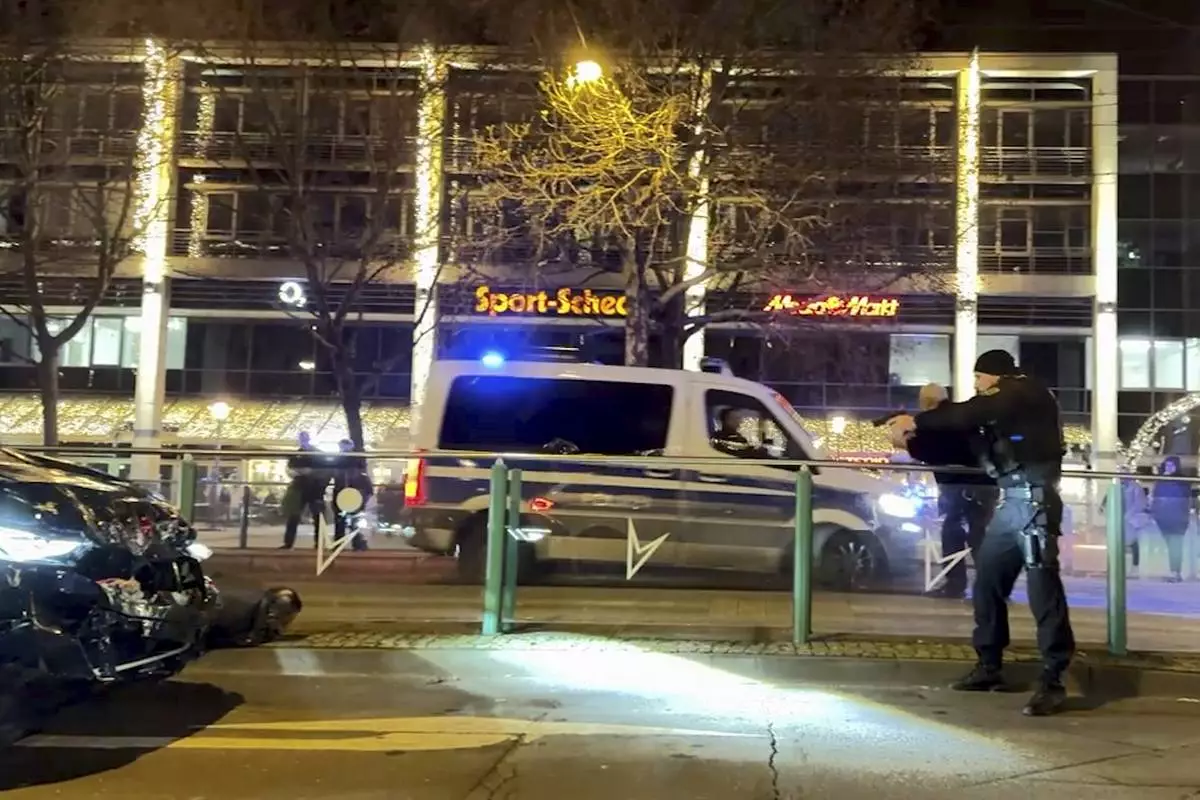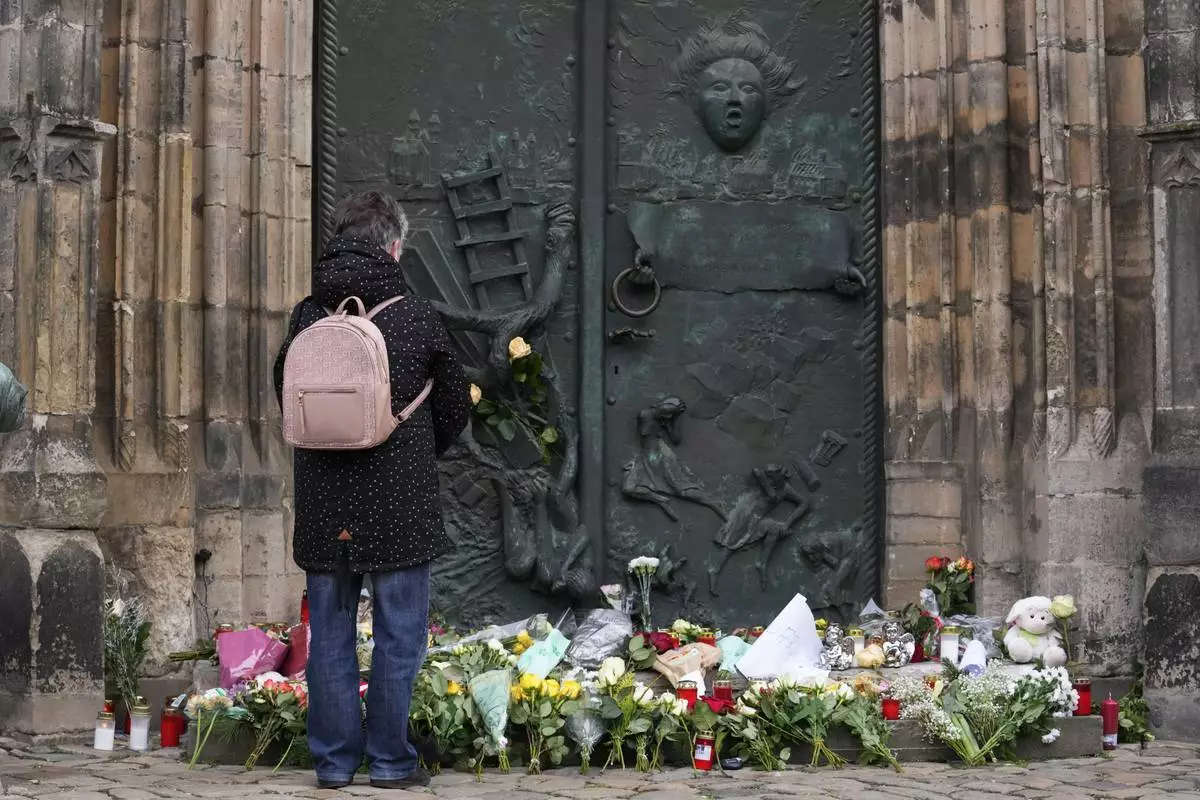LOUISVILLE, Ky. (AP) — Democratic Lt. Gov. Jacqueline Coleman was in campaign mode Monday, railing against a ballot measure that would allow Kentucky tax money to go toward students attending private and charter schools.
The issue hits home for Coleman, a former public school teacher and administrator who has taken a lead role campaigning against the proposal on the statewide ballot. If a simple majority of Kentucky voters approve it next month, the measure would remove constitutional barriers that have blocked the state's Republican-dominated Legislature from using public funds to support private school education.
Speaking at a union hall in Kentucky's largest city, Coleman warned of dire consequences for public schools, especially in rural areas, if the measure wins approval.
“We simply don’t have the resources to fund two separate systems of education," Coleman said. "But also we shouldn’t be because public dollars should stay in public schools.”
With no statewide races on the ballot, the school choice measure has turned into the most intensely debated issue of the fall campaign in the Bluegrass State. Both sides have run TV ads, mounted grassroots campaigns and accused each other of spreading disinformation about the issue.
Supporters of the measure, known as Amendment 2, include Republican U.S. Sen. Rand Paul. They say the measure would enable more parents to choose schools best suited for their children — the type of educational freedom they say is available in many other states.
“Every child in every neighborhood, of every color, class and background deserves a school that will help them succeed," Paul said in a statement Monday. "Educational freedom, as proposed by Amendment 2, ensures students are able to learn in the best environment possible and breaks the poverty cycle that far too often keeps children from fulfilling their potential.”
Supporters say the enhanced competition would result in better student performance.
“The dynamics created by choice motivate the public system to improve,” said Jim Waters, president of the Bluegrass Institute for Public Policy Solutions, a free-market think tank based in Kentucky. “This is needed in Kentucky’s public education system."
He pointed to results from statewide testing as an example of why he thinks the current system is falling short. More than half of public school students who took the exams failed to achieve proficient or distinguished levels in math, reading and science, he noted.
Supporters said the push to allow public money to be spent on private schools would especially benefit low- and middle-income parents who can’t currently afford to send their kids to such schools. Coleman pushed back against the argument, predicting that vouchers wouldn’t fully cover private school tuition.
“So where does the difference for families that can’t afford to go to private school ... come from? It doesn’t,” she said, predicting most voucher money would go to children already at private schools.
Republican lawmakers put the measure on the ballot. The proposal wouldn't establish policies for how the funds could be diverted. Instead, it would clear the way for the Legislature to consider crafting such policies to support students attending private schools.
Coleman warned Monday that if the measure succeeds, it would give the Legislature a blank check to support private school education, diverting large sums of tax money away from public schools.
“We have to defeat Amendment 2 because Kentucky’s public schools — that serve 90% of our students — deserve nothing but the very best,” she said.
Supporters of the measure point to increased funding for public schools as a clear sign of lawmakers' commitment to public education. The amounts, though, were much less than what Democratic Gov. Andy Beshear proposed.
The school-choice issue is especially sensitive in Republican-leaning rural Kentucky, where public schools are the lifeblood of the community and typically among the largest employers. Coleman, a product of rural Kentucky, aimed her message at small-town voters while speaking in Louisville.
“It is no secret that rural schools stand to suffer the most," the lieutenant governor said. "Many rural communities have no private schools. So the funding that would otherwise go to those communities will instead be centered in private schools in other parts of the state.”
The issue has been debated for years in Kentucky, as Republicans expanded their legislative majorities. Past efforts to expand school choice options were foiled by legal challenges, leading lawmakers to push for the ballot measure to amend the state constitution.
“What they want to do is change the rules, which is exactly what Amendment 2 wants to do,” said Allen Schuler, who represented the Kentucky Retired Teachers Association at the Louisville event. The group opposes the ballot measure.
A GOP-backed initiative to award tax credits for donations supporting private school tuition was struck down by Kentucky's Supreme Court in 2022. Currently, the state constitution only allows taxpayer money to fund “common schools,” which state courts have interpreted as public.
Coleman was twice elected as part of a slate with Beshear, who also strongly opposes the ballot measure. She said Monday that the popular Democratic governor also plans to speak out against the measure leading up to Election Day. Coleman said she'll keep up her campaign efforts.
“I will go anywhere, anytime, any place and speak about the damage that Amendment 2 will do to our kids, our schools and our communities,” she said.

Kentucky Lt. Gov. Jacqueline Coleman greets people at a union hall in Louisville, Ky., Monday, Oct. 7, 2024. (AP Photo/Bruce Schreiner)











